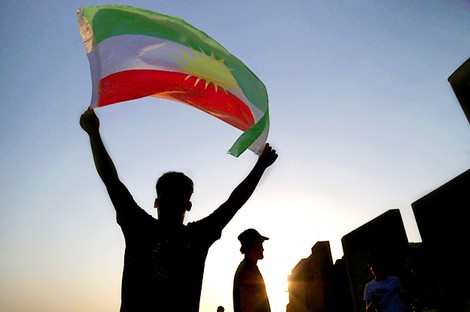Your podcast discovery platform
Curious minds select the most fascinating podcasts from around the world. Discover hand-piqd audio recommendations on your favorite topics.

piqer for: Global finds Globalization and politics Technology and society
Turkish journalist, blogger and media expert. Writes regular columns for The Arab Weekly and contributes to Süddeutsche Zeitung, El Pais and the Guardian. An European Press Prize Laureate for 'excellence in journalism' in 2014, Baydar was awarded the prestigious 'Journalistenpreis' in Germany by Südosteuropa Foundation in February 2018.
Impossible, Timely Or Too Early? 'Kurdexit' Is A Clash Between Hope And Rage
Some see it as the proper momentum. For the others it will be a move which may spark a regional war. No matter what, the world is holding its breath when the Iraqi Kurds go to the polls to decide on independence on September 25. President of the Kurdistan Regional Government (KRG), Massoud Barzani, has so far not yielded to pressure from the USA and key European countries. Israel is the only country which has given its support, while Russia and France keep silent. And Baghdad, Teheran and Ankara have already started to flex their muscles for sheer intervention if the vote is held.
The Turks are opposed to KRG independence because they are worried about Syrian Kurdish independence and they are currently engaged in a fight with the separatists of the Kurdistan Workers’ Party, a terrorist group. Yet Turkey is also the KRG’s largest investor, and Barzani’s KDP has developed strong ties to Turkey’s ruling Justice and Development Party. The Kurds are hoping that Turkish President Recep Tayyip Erdogan’s appropriation of the anti-Kurdish nationalist right will not affect their aspirations to statehood. Maybe, maybe not.
The Iranians have more of a capacity to make mischief for the Kurds, which is why officials in Erbil are angry that the United States has counseled a referendum delay. They believe this has only emboldened the Iranians to threaten the Kurds. From their perspective, the American position is bewildering. The Trump administration was supposed to roll back Tehran’s influence, not enable bad Iranian behavior.
From every vantage point there are all prospects at stake. One point is clear: Iraq will not give the USA a respite. Along with Syria, it is stretching the limits of its capabilites. And, in the background, the old regional order designed by Sykes-Picot Agreement (1916) is now collapsing.
